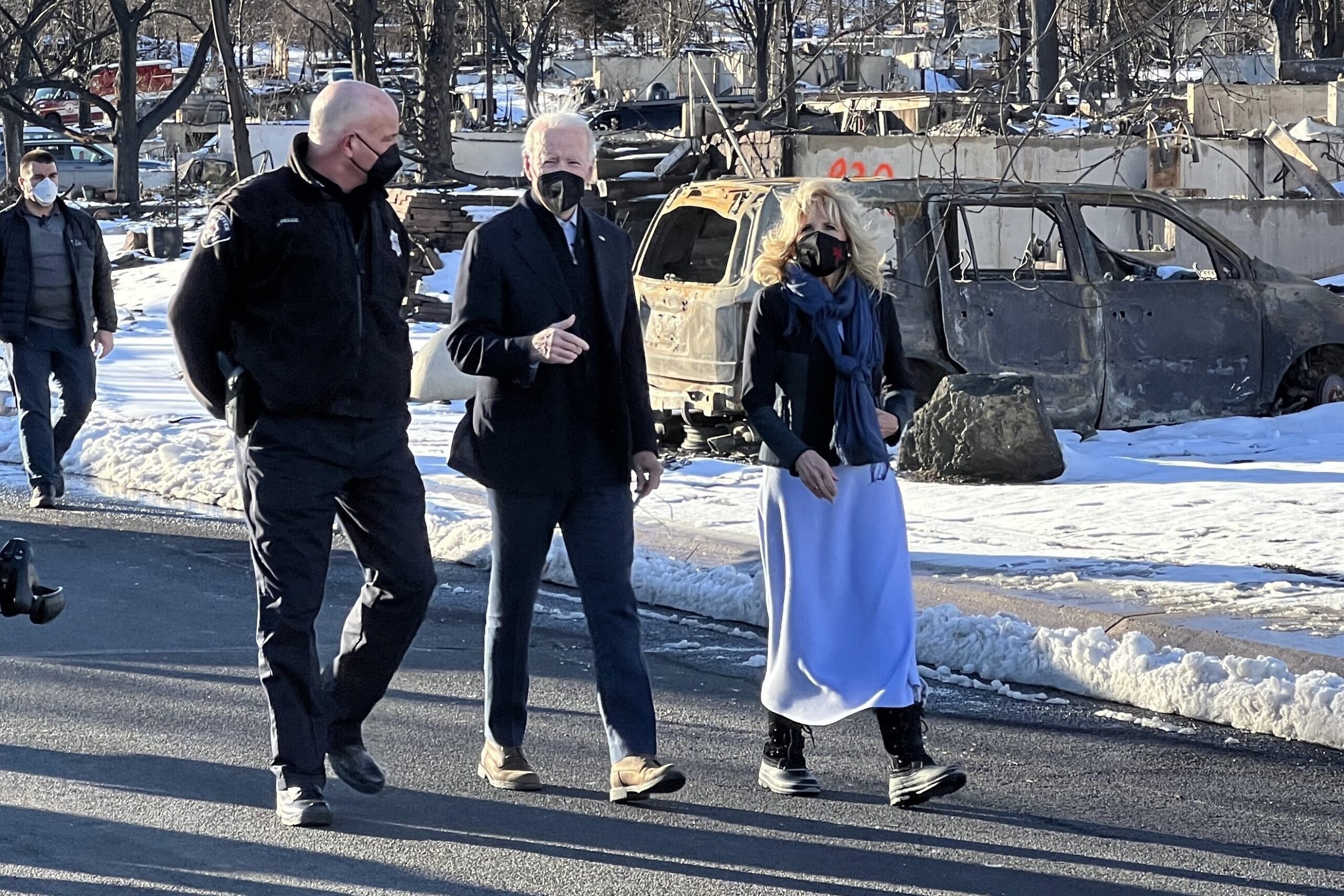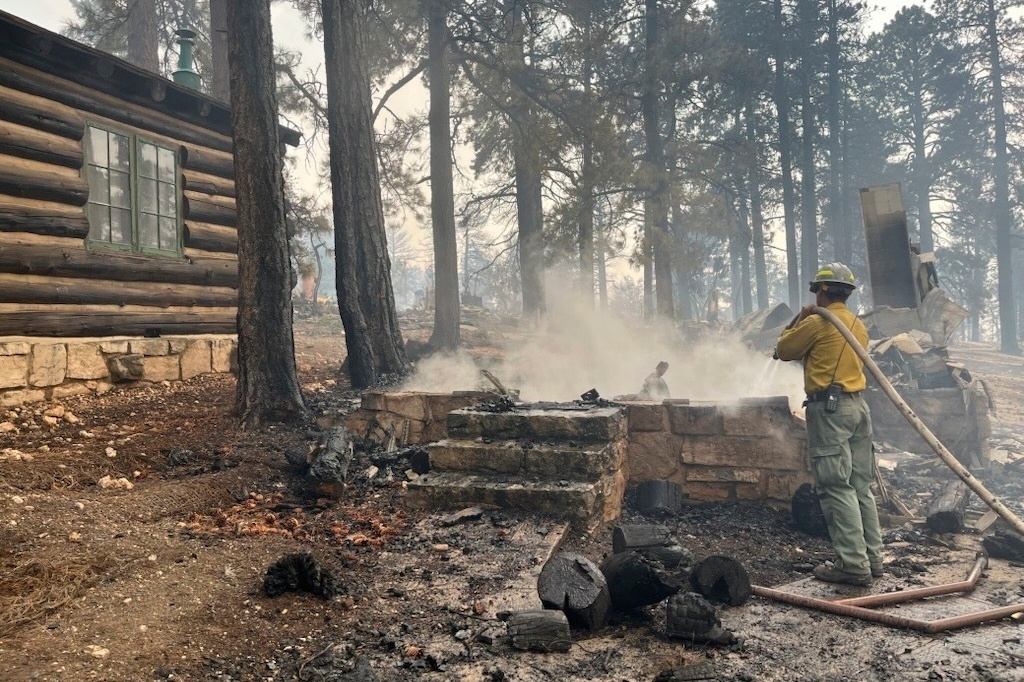
President Joe Biden on Friday toured the devastated Harper Lake area in Louisville, where blackened foundations stood in snow and the smell of scorch lingered. The neighborhood remains an active disaster scene, with National Guard members and Humvees guarding the entrances to cul-de-sacs lined with burned-out sedans.
“This neighborhood was so beautiful,” a woman said as she looked over the remains of her home for the first time, shortly before the president arrived. “It will take years to rebuild," she added through tears.
An hour later, the president and first lady Jill Biden walked slowly down the same street with Boulder Sheriff Joe Pelle, stopping to talk with first responders and listening to the stories of families who stood, masked, before the ruins of their homes. Entire blocks of houses had been destroyed in the Dec. 30 disaster.
In his remarks on Friday evening at Louisville Recreation & Senior Center, the president said several of the people he met asked the same question: What do we do now?
“The way you're going to get through this — because we've been through a few things ourselves — is just hang on to one another. You get through this,” he said. “Find purpose in what you’ve been through and what you’re going to do.”
Biden pledged federal support to help with clean-up and rebuilding for as long as is needed. He also noted that the federal government assisted during the fire with satellite imagery from the Defense Department and firefighting resources, as well as issuing a major disaster declaration on New Year’s Eve. Nearly 1,100 homes were destroyed in the fire, authorities reported.
“I intend to do whatever it takes, as long as it takes, to support you,” said Biden. Jill Biden also spoke briefly, expressing sympathy for families affected by the fires, including for those whose pets had died.
The fire destroyed more property than any in Colorado’s history -- a disaster that blew through populated suburban areas instead of mountainous forests. Fueled by historic drought and dry grass, the fire represents a larger, climate-driven threat to the sprawling interface between Front Range cities and the fire-prone natural environment. Authorities have identified one man believed to have died in the fire: Robert Sharpe, 69. Another woman remains missing.
In a separate interview, fire scientist Jennifer Balch said that the disaster should push the federal government to update and upgrade its maps of fire risk and consider new incentives for fireproofing structures and planning “fire-wise” developments.
“We’ve been really focused on forest fires and mitigating the fuels within forests, and now we need to think about at-risk communities that are in and around our grasslands and our open spaces,” said Balch, director of the Earth Lab at the University of Colorado Boulder.
Biden called the Marshall fire a “blinking code red” for the nation on climate change. "We can’t ignore the reality that these fires are being supercharged… by a change in the weather," he said.
And he took the opportunity to make a pitch for his stalled Build Back Better bill, emphasizing the resources it includes for advancing clean energy development.
“There’s a lot of good we’re going to do by acting boldly,” he said. “But the bottom line is, we have to summon the courage to do something about it.”
The president was accompanied on his visit by Colorado Gov. Jared Polis, Sens. Michael Bennet and John Hickenlooper, as well as the area’s congressional representative, Joe Neguse.
Neguse has made wildfire prevention and preparedness a focus during his two terms in Congress. On Thursday, he introduced the Western Wildfire Support Act. The legislation focuses on fire prevention, suppression, and recovery; it includes money to help fund communities’ fire prevention efforts and would require new wildfire prevention and detection efforts on federal land.
Neguse’s office said he plans to urge the president to direct more money to SAFER grants, which support local fire departments, extend a mortgage pause for people who lost homes in the fire, and increase funding for Community Block Grants to help with rebuilding.
The president didn't take questions from reporters during his visit.









